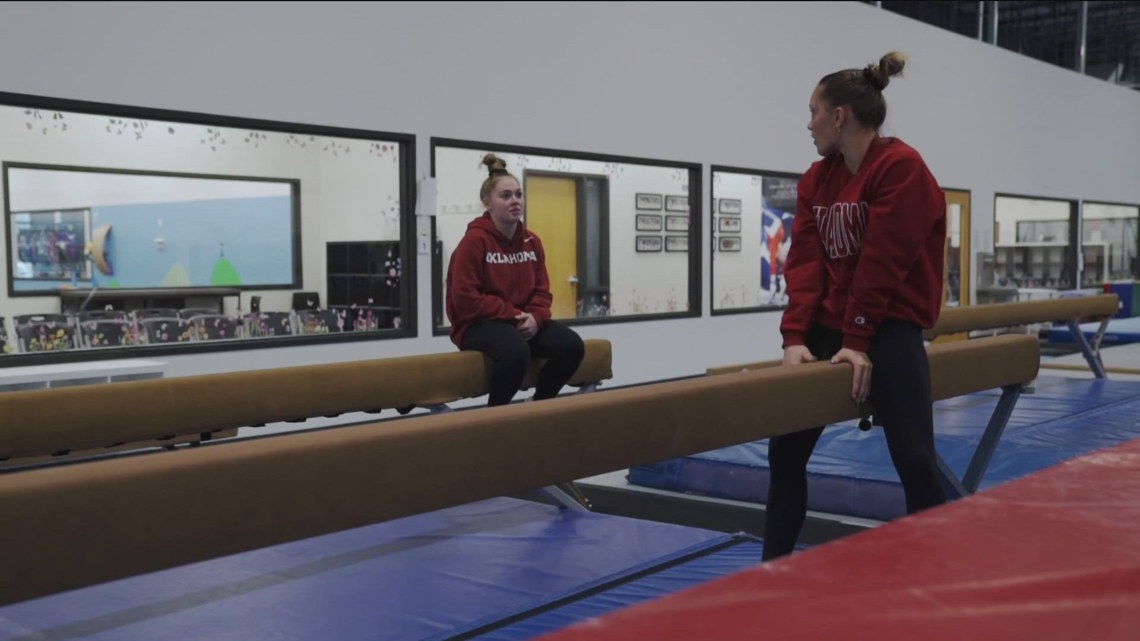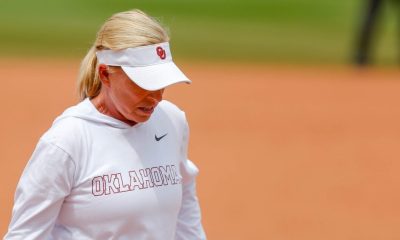Health
Morning Coffee May Help You Live Longer, Reduce Cardiovascular Disease Risk
“The body has a diurnal cycle of waking, going and relaxing, and eventually sleeping. Morning coffee goes along this cycle, while continued drinking, particularly in the late afternoon disrupts this cycle and sleep,” Thomas Lüscher, MD, consultant cardiologist and director of research, education and development at Royal Brompton and Harefield hospitals in the United Kingdom, […]



- The time of day you consume coffee may affect mortality risk, especially from cardiovascular disease.
- People who consume coffee primarily in the morning, rather than throughout the day, had lower mortality risk compared to non-coffee drinkers, according to a new study.
- It’s unclear why morning coffee consumption appears to offer greater heart health benefits. Experts note that consuming coffee later in the day may disrupt sleep patterns.
Health
Kiera Mitchell
Kiera Mitchell is a redshirt freshman defender for the WSU soccer team. Mitchell comes from Henderson, Nevada. She played for Albion Soccer Club in Las Vegas, the fourth-ranked team in Nevada, during high school. In the 2024 offseason, Mitchell suffered a season-ending injury, so she spent her freshman year redshirting. She will make her WSU […]



Kiera Mitchell is a redshirt freshman defender for the WSU soccer team.
Mitchell comes from Henderson, Nevada. She played for Albion Soccer Club in Las Vegas, the fourth-ranked team in Nevada, during high school.
In the 2024 offseason, Mitchell suffered a season-ending injury, so she spent her freshman year redshirting. She will make her WSU debut in 2025.
“Soccer is my life and my passion,” wrote Mitchell on her NCSA recruiting profile.
The 5-foot-11 defender wrote that she hopes to play professionally and will play whatever position it takes.
“I’m a centerback at heart,” wrote Mitchell. “But always looking to attack when possible.”
Now, however, Mitchell will be a defender for the Cougars in 2025.
Health
Panthers partner with Blue Cross NC for goat yoga to improve mental health
“We are role models to the communities and, you know, it’s something that’s not taken into account, they think, maybe just because of what we do, it’s just easy, but it’s serious,” said Wharton. “And letting them know that even though we’re doing things and having fun we also still go through those battles.” Added […]



“We are role models to the communities and, you know, it’s something that’s not taken into account, they think, maybe just because of what we do, it’s just easy, but it’s serious,” said Wharton. “And letting them know that even though we’re doing things and having fun we also still go through those battles.”
Added Wallace, “It’s really important to talk about mental health because at the end of the day, everybody struggles with mental health no matter if you’re an athlete, not an athlete, we’re humans.”
Read more here on how Blue Cross NC is committed to improving the mental health of youth throughout the state.
Health
Lexington County athletes medal at SCHSL track and field championships
By Jacob Phillips The track season has ended for athletes in Lexington County following the conclusion of the South Carolina high School League track and field championships. Over the course of three days, athletes from all over South Carolina traveled to Spring Valley or Richland Northeast High School for the state championships. The best-of-the-best came […]



The track season has ended for athletes in Lexington County following the conclusion of the South Carolina high School League track and field championships.
Over the course of three days, athletes from all over South Carolina traveled to Spring Valley or Richland Northeast High School for the state championships. The best-of-the-best came together to compete head to head for gold in various track and field events.
Each classification had its own meet. Two meets were held each day with one at each host site.
In all, 43 Lexington County athletes left with a gold, silver or bronze medal. Many others finished in the top-eight to earn a spot on the expanded podium.
Nine different athletes won a gold medal, and one program scored enough points to win the overall team championship.
Gray Collegiate’s girls team won its second-consecutive state title, and first in 4A, after scoring 61 points. The War Eagles finished three points ahead of Daniel to win the championship.
The War Eagle girls were propelled to first place thanks in part to an excellent showing from Tamara Steward. She finished the day with four medals, two gold, one silver and one bronze.
Steward was on the track and in the field, finishing first in the girls 100m hurdles and long jump. She got a silver medal in the girls 400m hurdles and a bronze in the 4x100m relay.
Taylor Jones, Aliyah Edwards and Zaria Gaines won a bronze medal as Steward’s relay teammates.
Steward was not the only athlete to win multiple medals at the games. Her teammate Tresta Miller won two silvers in the 100-meter and 400-meter races.
Gray’s Damarcus Gaither won three medals in the boys events, claiming first in the 200-meter run and 4×100-meter relay and second in the 400.
Brookland-Cayce’s Aden Price won three medals, finishing first in the 400-meter race, third in the 100-meter and third in the 4×400-meter relay.
In the 2A meet, a pair of Batesburg-Leesville athletes double-medaled in field events. Keira Frye won gold in the girls discus and shot put, while Ja’Quan Corleyearned bronze and silver in the same boys events.
The state title meets mark the end of the high school track season in South Carolina. Some of the state’s top athletes will get the chance to keep running at national events early this summer.
Below is a list of all the local athletes who medaled and what event they won it in.
Lexington County athletes to medal
5A Division I
Kendra Miles – Lexington – 2nd girls 1600m
Ciara Williams – Lexington – 2nd girls long jump
Josh Voegele – Lexington – 3rd boys 1600m
TyRon Ray – River Bluff – 3rd boys high jump
Patton Casto – River bluff – 3rd girls shot put
Tyler Brown – Dutch Fork – 3rd boys 4x800m relay
Evan DeMasi – Dutch Fork – 3rd boys 4x800m relay
Eli Johnson – Dutch Fork – 3rd boys 4x800m relay
Owen Warner – Dutch Fork – 3rd boys 4x800m relay
5A Division II
Nyla Fair – White Knoll – 2nd 100m hurdles
Summit Wood – Chapin – 3rd boys 3200m
Reagan Trevett – Chapin – 3rd girls 800m
McKenzie Lindler – Chapin – 3rd girls pole vault
Reagan Trevett – Chapin – 3rd girls 4x800m relay
Lilly Holman – Chapin – 3rd girls 4x800m relay
Jacqueline Bonavilla – Chapin – 3rd girls 4x800m relay
Addison Houmiel – Chapin – 3rd girls 4x800m relay
4A
Damarcus Gaither – Gray Collegiate – 1st boys 200m, 1st boys 4x100m relay, 2nd boys 400m
Kayden Garvin – Gray Collegiate – 1st boys 4x100m relay
Caleb Raysor – Gray Collegiate – 1st boys 4x100m relay
David Quattlebaum – Gray Collegiate – 1st boys 4x100m relay
Tamara Steward – Gray Collegiate – 1st girls 100m hurdles, 1st girls long jump, 2nd girls 400m hurdles, 3rd girls 4x100m relay
Taylor Jones – Gray Collegiate – 3rd girls 4x100m relay
Aliyah Edwards – Gray Collegiate – 3rd girls 4x100m relay
Zaria Gaines- Gray Collegiate – 3rd girls 4x100m relay
Tresta Miller – Gray Collegiate – 2nd girls 100m, 2nd girls 400m
DeAndre Jones – Brookland-Cayce – 1st boys high jump
Aden Price – Brookland-Cayce – 1st boys 400m, 3rd boys 100m, 3rd boys 4x400m relay
Isaiah Daniels – Brookland-Cayce – 3rd boys 4x400m relay
D’andre Dunbar – Brookland-Cayce – 3rd boys 4x400m relay
Jaylen Glover – Brookland-Cayce – 3rd boys 4x400m relay
London Paige – Brookalnd-Cayce – 3rd girls high jump
Aaliyrah Culbreath – Airport – 2nd girls long jump
Amari Lewis – Airport – 3rd boys 4x100m relay
Kyree Montgomery – Airport – 3rd boys 4x100m relay
Kendrick Pearson – Airport – 3rd boys 4x100m relay
Terrance Bolden – Airport – 3rd boys 4x100m relay
3A
Aza Shelby – Swansea – 3rd girls 100m hurdles, 3rd girls 400m hurdles
2A
Madison Kyzer – Pelion – 1st – girls javelin
Corey Campbell – Pelion – 2nd boys pole vault
Johnathan Davis – Pelion – 3rd boys 100m
Keira Frye – Batesburg-Leesville – 1st girls shot put, 1st girls discus
Ja’Quan Corley – Batesburg-Leesville – 2nd boys shot put, 3rd boys discus
Health
Mental health awareness with “Beyond the Stigma” panel for Harris County employees
In honor of Mental Health Awareness Month, County Judge Lina Hidalgo hosted a panel discussion, Beyond the Stigma, for County workers to learn about the mental health resources and support available to them. Hidalgo was joined by healthcare experts and two former Texans football players who shared their personal stories about mental health. “Really surrounding […]



In honor of Mental Health Awareness Month, County Judge Lina Hidalgo hosted a panel discussion, Beyond the Stigma, for County workers to learn about the mental health resources and support available to them.
Hidalgo was joined by healthcare experts and two former Texans football players who shared their personal stories about mental health.
“Really surrounding yourself with people that if your therapist tells you not to bother her, you can call the next person on the list,” Hidalgo said. Emphasizing the importance of building strong support networks.
Key Strategies for Mental Health Support
The panel discussion highlighted three essential approaches to mental wellness:
Building Support Network: Mental health experts emphasize the value of developing reliable support systems beyond professional therapy. These networks can include family members, friends, trusted colleagues, or teachers who provide crucial emotional support during challenging times.
Ongoing Health Management Project: Dr. Quianta Moore, Executive Director of The Hackett Center for Mental Health, stressed that mental healthcare deserves the same attention as physical health. “If you go to your primary care doctor, they should be asking you questions around your mental health,” Moore said.
She emphasized that mental health management is an ongoing process, encouraging individuals to explore different therapeutic approaches until finding the most effective treatment.
Breaking Stigmas: Former Houston Texans player Owen Daniels addressed common misconceptions about mental health, particularly among men and athletes. “For me is to share that, to help destigmatize this mental health specifically for men, for athletes… For people that might seem like they have it all together and that they don’t have anything to have mental health issues about,” Daniels said.
Available Resources for County Employees
Harris County has implemented comprehensive mental health support services for its workforce, including:
-
Four onsite mental health clinicians
-
Peer support programs
-
Mental health awareness training
-
Specialized resources and educational materials
Judge Hidalgo’s Leadership Through Example
Hidalgo’s openness about her 2023 leave of absence for mental health treatment has resonated throughout the county workforce. Her transparency demonstrates that seeking mental health support represents strength rather than weakness, challenging long-standing stigmas around mental health care.
The county’s initiative aligns with broader national efforts to normalize mental health discussions in the workplace and ensure accessible support services for employees.
Health
Girls' golf swings their way to 6th in state
With hard work, skill and a whole lot of drive, the Staples girls’ golf team climbed their way up to sixth in the state. So, what is this dream team’s secret to their victories and success? Well, the team heavily focuses on and caters to the mental health of all team members, taking many mental […]



With hard work, skill and a whole lot of drive, the Staples girls’ golf team climbed their way up to sixth in the state.
So, what is this dream team’s secret to their victories and success? Well, the team heavily focuses on and caters to the mental health of all team members, taking many mental health classes throughout the season. A sharp mind is the key to the team’s success.
“Our team worked towards this ranking by staying positive,” Lucy Hill ’27 said. “We practice not only on the course, but also off the course with mental health classes to keep a good mindset since golf is a very mental sport.”
Mental performance coach Rhodie Lorenz leads these mental health classes frequently.
“It’s easy to get overwhelmed with the sport and to let one bad shot affect the rest of the hole,” team captain Lauren Clementi ’25 said, “but having our mindset changed by these mental health classes has definitely helped us.”
The team has tough competition, but overall, their positive attitudes keep them smiling and having a good time, win or lose. Their captains – Clementi, Aviva Ross ’25, Rachel Pontoriero ’25 and Katelynn Mitchell ’26 – work to create a fun and stress-free atmosphere for the players.
“I’d say we’re a pretty positive team,” Clementi said. “We like to have fun and we don’t take everything too seriously, which creates an environment where we are able to have fun. I think that’s why we have such a large team.”
This year the team has gotten increasingly more popular, accumulating a total of 28 players on JV and eight players on varsity.
Staples sports are taken seriously, so being an athlete can get pretty intense and stressful, especially while being a member of the varsity team. However, the girls’ golf team seems to have nailed the perfect balance between hard work and fun.
Health
Minnesota gymnasts embrace mental health to capture national title at Oklahoma
Elle Mueller and Lily Pederson led Oklahoma to a national gymnastics title, emphasizing mental health. MINNESOTA, USA — For gymnasts, athletic success is often defined by strength, precision and discipline. But for two Minnesota natives now competing at the University of Oklahoma, the path to a national championship was shaped just as much by mental […]


Elle Mueller and Lily Pederson led Oklahoma to a national gymnastics title, emphasizing mental health.
MINNESOTA, USA — For gymnasts, athletic success is often defined by strength, precision and discipline. But for two Minnesota natives now competing at the University of Oklahoma, the path to a national championship was shaped just as much by mental resilience as physical training.
Elle Mueller, from Blaine, and Lily Pederson, from White Bear Lake, have been in leotards since they were toddlers. Once competitors, the two became teammates this year at Oklahoma, where they helped lead the Sooners to a national gymnastics title in 2025.
“It’s always been my dream to do college gymnastics,” Pederson said. “To actually be here now — I don’t ever want to stop.”
Mueller, who once competed for Team USA alongside future Olympians, was on an elite track throughout high school. She took online classes to accommodate her intense training schedule, but in her senior year, she made the difficult decision to step away from elite competition — a move driven by her need to prioritize mental health.
“I would do my routines for my coaches, not for myself,” Mueller said. “I’ve learned to do things out of love, for myself — and to finally have confidence in who I am.”
Her mother said she could sense the emotional toll gymnastics was taking.
“I wasn’t going to tell her she needed to change,” she said. “But I knew she was hurting. I knew she wasn’t happy. When she finally said she wanted to step back, I was so thankful.”
Mueller and Pederson’s willingness to prioritize mental well-being reflects a broader shift in the culture of elite sports — a shift catalyzed, in part, by Olympic legend Simone Biles. At the Tokyo Olympics in 2021, Biles stunned the world by pulling herself from competition after experiencing the “twisties,” a dangerous loss of air awareness. Her openness about mental health struggles helped dismantle long-standing stigmas in the gymnastics community and beyond.
“I think I’ve found my confidence,” Mueller said. “Just to do everything for myself, from a place of love — that’s something I didn’t have before.”
Pederson shared a similar path — one marked by stepping away from pressure and stepping into her own identity as an athlete and person.
“Getting to do this all together, makes it better,” Pederson said.
As the two prepare to return to Oklahoma for another season, both athletes say they’re not just following a path — they’re owning it.
“Mental health matters,” Mueller said. “Don’t push it under the rug. You have to take care of it.”
If you or someone you know is struggling with mental health, help is available:
-
National Suicide & Crisis Lifeline: Dial 988 — free, 24/7, confidential support for people in distress.
-
The Trevor Project (for LGBTQ+ youth): Call 1-866-488-7386 or text ‘START’ to 678-678.
-
NCAA Mental Health Resources: www.ncaa.org/sport-science-institute/mental-health
-
Athletes for Hope: Offers mental health resources for athletes at all levels — www.athletesforhope.org
-

 Fashion3 weeks ago
Fashion3 weeks agoHow to watch Avalanche vs. Stars Game 7 FREE stream today
-

 High School Sports2 weeks ago
High School Sports2 weeks agoWeb exclusive
-

 Sports2 weeks ago
Sports2 weeks agoPrinceton University
-

 Sports2 weeks ago
Sports2 weeks ago2025 NCAA softball bracket: Women’s College World Series scores, schedule
-

 Motorsports2 weeks ago
Motorsports2 weeks agoBowman Gray is the site of NASCAR’S “Advance Auto Parts Night at the Races” this Saturday
-

 NIL2 weeks ago
NIL2 weeks ago2025 Big Ten Softball Tournament Bracket: Updated matchups, scores, schedule
-

 NIL2 weeks ago
NIL2 weeks agoPatty Gasso confirms Sophia Bordi will not finish season with Oklahoma softball
-

 Motorsports2 weeks ago
Motorsports2 weeks agoMOTORSPORTS: Three local track set to open this week | Sports
-

 Motorsports2 weeks ago
Motorsports2 weeks ago$1.5 Billion Legal Powerhouse Announces Multi-Year NASCAR Deal With Kyle Busch
-

 Sports2 weeks ago
Sports2 weeks agoUSA Volleyball Announces 2025 Women’s VNL Roster























































